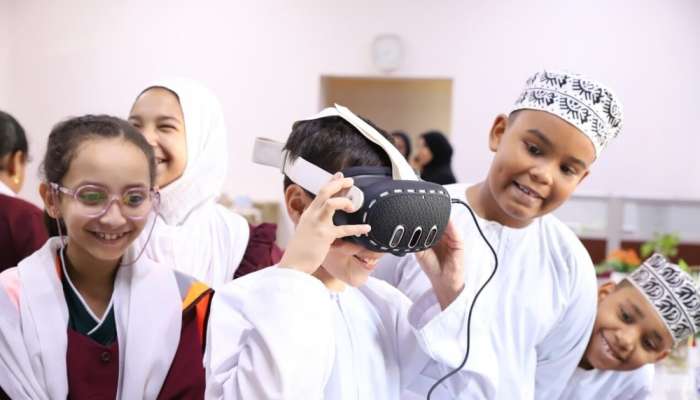
Muscat: The Children Cultural Centre, affiliated to the Directorate General of Knowledge and Cultural Development at the Ministry of Culture, Sports and Youth, continues its efforts to enhance digital projects aimed at children.
This initiative aligns with a vision to develop digital awareness and instill concepts of creativity and interactive learning among young people.
The Centre’s approach reflects its commitment to aligning cultural and educational programs with modern demands, opening new horizons for children to acquire future skills and empowering them to engage positively with technology through innovative digital content that combines entertainment and knowledge.
In 2024, the number of beneficiaries of the Centre’s events and activities reached 35,603, while from January to July of this year, the figure rose to 39,383 beneficiaries.
Salwa Saif Al Rashdi, Director of the Children Cultural Centre, stated that the goal of these projects goes beyond visual presentation or technical entertainment.
Instead, it aims to build a sustainable cognitive relationship between children and their cultural identity by revitalising Omani heritage as a living, interactive experience.
She explained that, in line with the Centre’s vision to reinforce Omani cultural identity and enhance young people’s awareness of their civilizational heritage, it continues to launch a series of interactive digital projects that blend authenticity with innovation.
These projects, she said, utilise virtual reality (VR), artificial intelligence (AI), and electronic gaming applications—effective tools for connecting new generations to their cultural roots in a contemporary and engaging manner.
She noted that these projects align closely with the objectives of Oman 2040 and the national cultural strategy, particularly in fostering a creative society, national identity, digital transformation, and innovation-based education.
The Centre aspires to serve as a cultural knowledge platform, enabling children to become active contributors in shaping their country’s future.
She added that these projects are utilised in events and activities both within and outside Oman related to Omani cultural identity. Combining entertainment and education, they introduce young people to their historical and cultural roots.
Among these projects—spanning culture, sports, and technology—are two initiatives centered on the traditional Omani games Al-Anbar and Al-Sayyad.
These projects, she affirmed, play a vital role in preserving Omani cultural heritage and introducing new generations to these games in an engaging and innovative way, while also fostering creative thinking and problem-solving skills in children. Both projects operate using Unreal Engine technology.
Another project, “The Date Palm and Related Practices: An Interactive Story on Date Harvesting,” falls under culture, science, and technology. Utilizing VR, it educates children about the date palm’s significance in Omani society—a heritage element inscribed on UNESCO’s Representative List of the Intangible Cultural Heritage of Humanity—while promoting awareness of agricultural traditions, she added.
Additionally, the “Interactive Camel Race Experience”, powered by VR, highlights the social customs tied to Omani sporting heritage. It offers users an interactive simulation of camel racing in a safe environment.
Meanwhile, the “Smart Child Cultural Centre” project, employing AI, data analysis, and remote-control technologies, is an eco-friendly model embodying innovation and successful diversity. It supports national digital transformation goals by investing in childhood as a cornerstone for building a knowledge and technology-driven future.
The Centre has previously executed projects such as “Displaying an Ancient Omani Manuscript” by Omani physician Rashid bin Umaira and “Folk Arts”. It also plans to launch additional digital projects later this year.